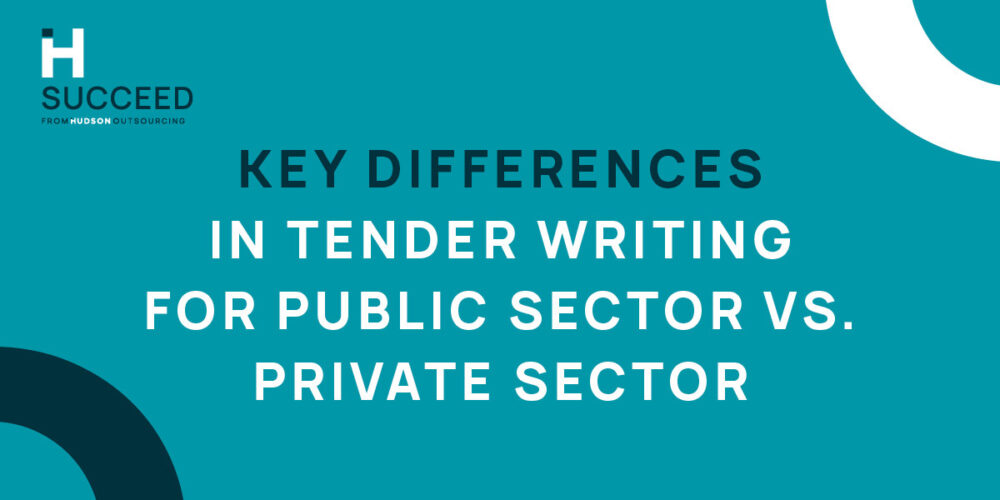What to expect from PQQs?
If you’re tendering for contracts, you most likely have come across PQQs. You may be wondering what they are and what’s required. You can find them in both private and public sector procurement.
What are PQQs?
PQQs are pre-qualification questionnaires. They are most commonly used as an initial stage of qualification assessment for tendering. It is mostly a box-ticking exercise to ensure you meet the minimum eligibility criteria for a contract.
PQQs are now also known as SQs (selection questionnaires). This is a more updated system introduced by the Crown Commercial Service (CCS).
They cover the status of your business, including relevant policies and procedures, finances and quality control measures. Essentially, PQQs are used to ensure that you’re capable of delivering and compliance with specific regulations.
What is the difference between PQQs and SQs?
There are only a few differences between PQQs and SQs. Mainly that the exclusion grounds in the modernised selection questionnaire relates to the latest version of Public Contracts Regulations 2015.
When are PQQs likely to be used?
PQQs are often used when a buyer is procuring more complex goods. This is because buyers need to be sure prospective suppliers are qualified to deliver the contract. In order to do this, they set initial qualification questions to establish they meet the minimum eligibility criteria. PQQs are used for two-stage restricted tendering procedures.
Restricted procurement procedure
A restricted procedure, sometimes called selective tendering, may be used if a buyer is procuring more complex commodities. They want to create a shortlist of potential suppliers to ensure they can deliver the contract. Their capabilities will be assessed. The process typically looks like this:
The PQQ process
PQQs are released and interested, and prospective suppliers can complete them. At this stage, anyone can fill out the questionnaire.
Once the buyer has assessed the questionnaire responses, they’ll shortlist eligible businesses for the contract. These companies would then receive their invitation to tender (ITT) documents.
Next, the suppliers would complete their tender responses on how they plan to deliver the contract. They would complete the quality sections and price their services or goods.
The buyer will then evaluate the ITT responses and award the contract to the most suitable buyer. If you’re bidding for public sector contracts, the most economically advantageous tender (MEAT) would win. The same can’t be said for private contracts as they can be awarded however the buyer likes, be it on price or quality.
What can I expect from a PQQ?
You can expect to detail the following information when completing a PQQ:
This includes your registration and VAT number, company address and contact information.
- Economic and financial standing
In the economic and financial standing section, you will be assessed on three things. They are annual turnover, financial ratios and insurance.
- Health and safety regulations
A buyer will want to be assured that you operate to the highest health and safety authority. This could include Health and Safety at Work Act 1974.
- Project-specific questions
- Quality management systems
These could be quality management systems such as ISO 9001, for example.
- Relevant policies and procedures
- Staff and subcontract information (if applicable)
- Any grounds for mandatory exemption
A simple yes/no response to various statements.
- Case studies/testimonials
It’s likely that you will need to submit two or three case studies when compiling your response for PQQs. These need to be relevant and similar in scope and complexity to the contracts you’re applying for. Buyers often ask for case studies that have been completed within the last three to five years.
Sometimes you can be asked to include testimonials from previous clients. Bear in mind that you’ll likely need to include their contact information. This is because buyers want to ensure that you’re telling the truth and not fabricating any information.
What sectors use PQQs?
Most sectors use either PQQs or SQs, this includes facilities, logistics and technology. Below are a couple of examples that use a similar PQQ-style system:
PAS91
The construction sector also uses PQQs, however, they are known as PAS91s. It was developed by the British Standard Institute to save construction companies from filling out multiple PQQs. Although it’s slightly longer than a PQQ or SQ, it has the same mentality. Once you’ve completed it, you no longer have to complete core sections if you have certain accreditations. You are also able to develop a standardised response to the standardised questions which saves you time.
PCS-Tenders
Another system that uses a type of PQQ is PCS-Tenders. PCS-Tenders is a type of eTendering system used by the Scottish Government. PCS stands for Public Contracts Scotland. One of the main advantages of this is that there are standardised SPD (Single Procurement Document) templates. Buyers can use standardised ITT templates allowing buyers to create consistent tender documentation.
Suppliers can then complete their profile on the system allowing them to answer these questions ahead of time. They then don’t need to complete it every time when bidding for a new contract. They simply need to update it as time goes on. This, again, saves them time when it comes to the procurement process.
Where can I find contracts for my business?
Our sister company, Hudson Discover, hosts 11 sector-specific tendering portals. You’re able to filter the search results by location, keyword, budget and more. This helps you find the perfect bid for your business – streamlining the process and saving you time.
Our portals cover the following industries:
What makes Hudson Discover different?
We don’t use unreliable CPV codes to track opportunities. Our Opportunity Trackers manually search and upload unique, public and private sector opportunities. You can find them on one centralised and easy-to-navigate portal. This can save you a lot of time when search for new business contract opportunities, streamlining the process.
Need assistance with your next PQQ?
Although you’re a bit more familiar with what’s required, you might still be looking for some support with PQQs. Writing isn’t everyone’s strong suit and that’s ok. Outsourcing to bid writing specialists can help you secure that next contract and grow your business.
Here at Hudson Succeed, we pride ourselves on being bid writing experts. We hold an 87% success rate and have over 60 years of collective bid writing experience.
We offer four levels of bid writing support to suit every business need. You may not need the whole bid written for you; you may simply need it proofread before you submit. We can help with that.
Our services
Tender Writing
Once you’ve found the perfect bid for your business, send it our way. Our Bid Writers can take care of the whole thing for you they’ll even submit it on your behalf. They’ll let you know what they need from you, providing you with a full Tender Writing breakdown.
Tender Ready
Our Tender Ready 4-week programme is perfect for businesses that have never tendered before. A Bid Writer will work with you to ensure you have everything in place to tender successfully. They can also help you better understand the tendering process. Tender Ready offers your business:
- A 12-month subscription to one Hudson Discover.
- Access to Global Bid Directors and Senior Bidding Professionals.
- An Organisation-wide Bid library, including 3 case studies, 5 CVs and policies.
- Additional flexible benefits.
Tender Improvement
If you’ve been tendering but aren’t seeing success from your current efforts, our Tender Improvement package can help. Our Bid Team will assess your previous responses and tender documents. They will work with you to improve for future submissions. This package includes a 12-month subscription to a Hudson Discover portal and additional tendering development services.
Tender Mentor
If you’ve written your own tender response and need it double-checked for errors, Tender Mentor can help. A Bid Writer will proofread your work for any inconsistencies, grammar or spelling mistakes. They will also ensure it’s in line with the specification before you submit.
Additional support
If you only need the assistance with PQQs or SQs we can help. Send the information over to us and we can provide you with a quote for the work involved.
Discover Elite
Upgrading to Discover Elite can help optimise your tendering efforts – even when you’re busy. Our two new time-saving tools can improve your competitor awareness and success rate when bidding for a contract.
The Ultimate Time Saver package offers your business:
- A maximum of five tender breakdowns per month.
- An annual subscription to a maximum of two Hudson Discover sector-specific portals. This option can help businesses that overlap two industries such as Healthcare and Technology, for example.
- Pre-market and award engagement notices monitored on your behalf.
- Buyer portal management, including registration, password management, downloading documents and assessing viability based on your bid or no-bid strategy.
- Weekly phone calls with your dedicated Account Manager to discuss viable tendering opportunities.
The Become a Pre-Bid Master package also includes:
- All of the above.
- Up to seven tender breakdowns per month.
- A Bid Strategy delivered by a Senior Bid Manager with a minimum of 5 years of experience. It will also be managed by our Global Bid Director.
Contact us to find out how we can help your business grow.
Find more helpful tips and advice in our blogs. We cover topics including:






